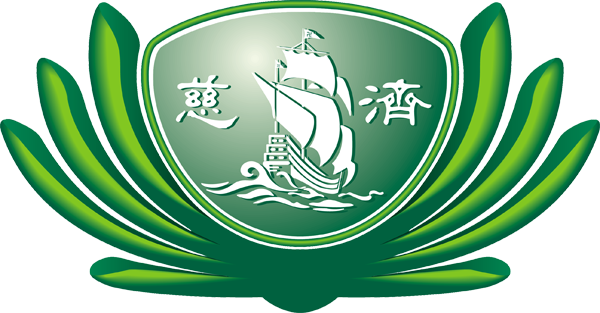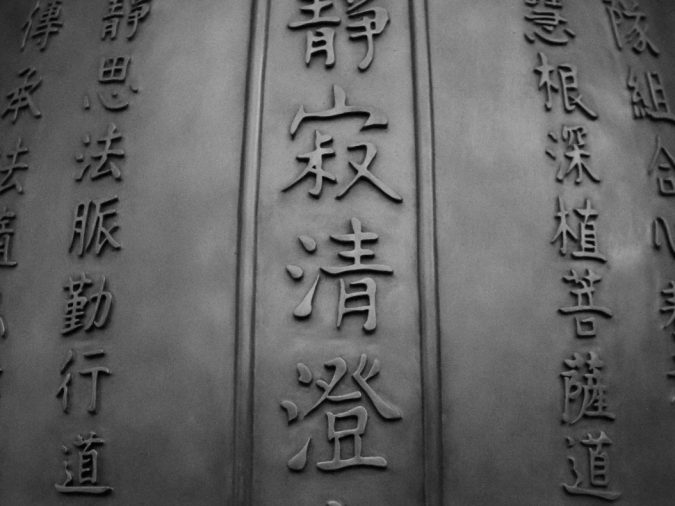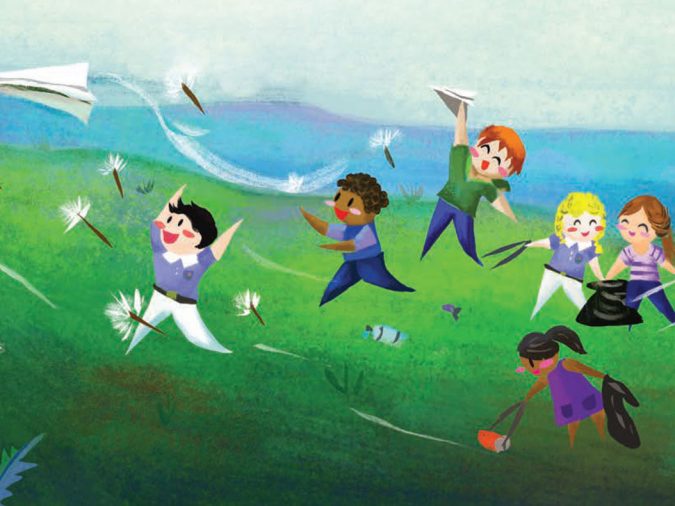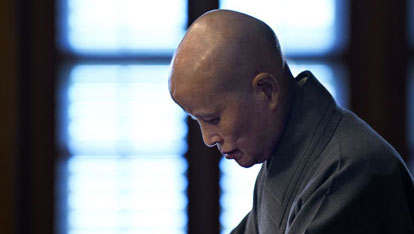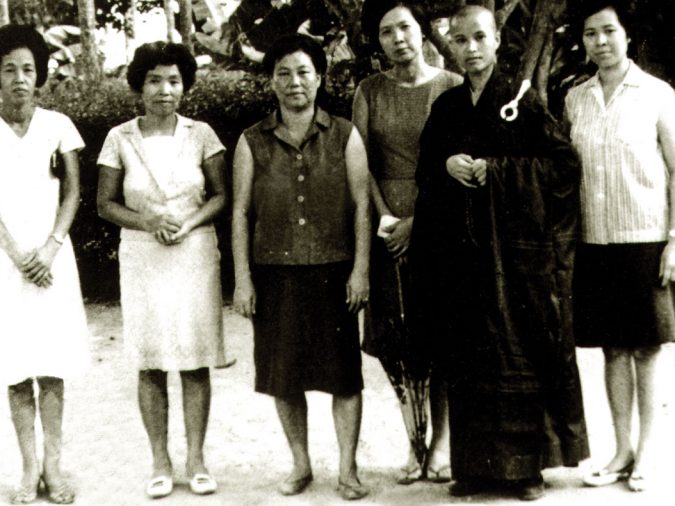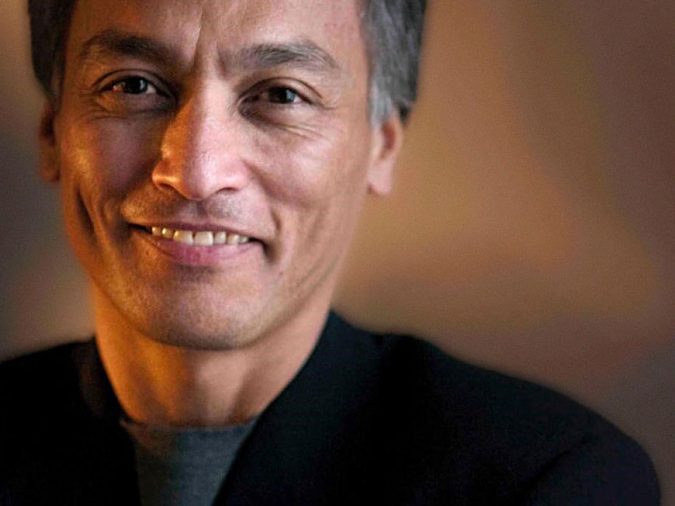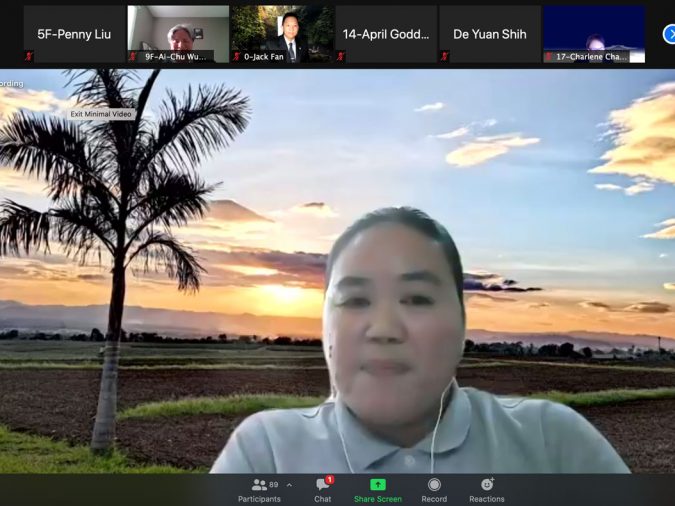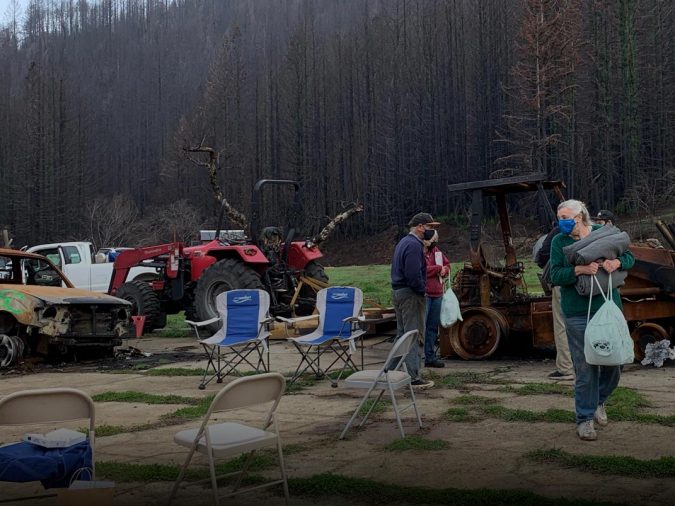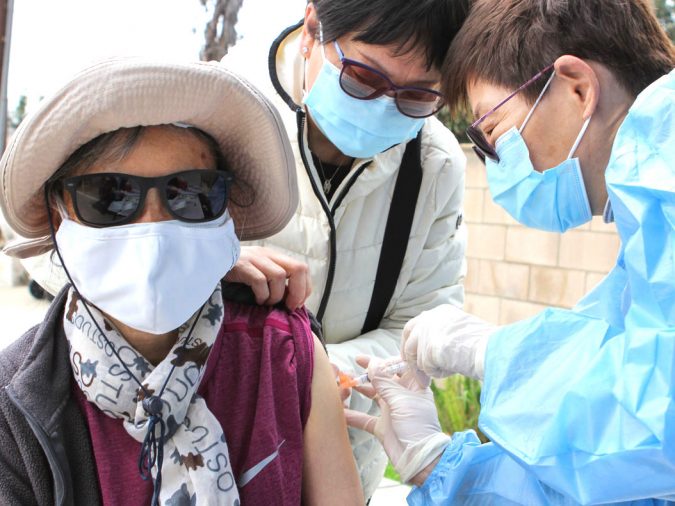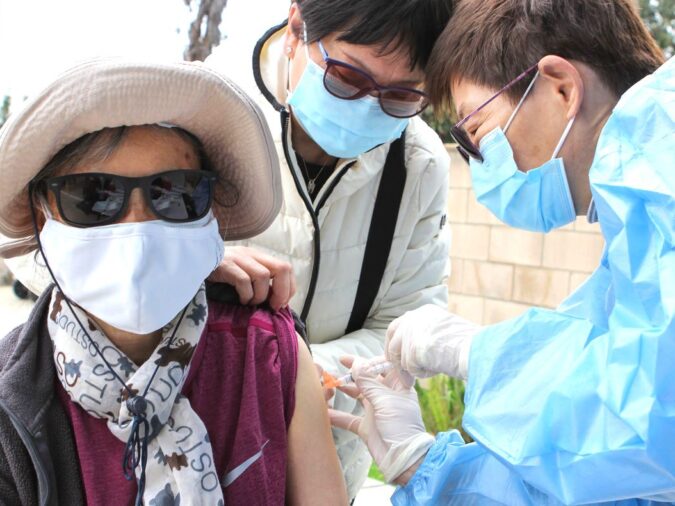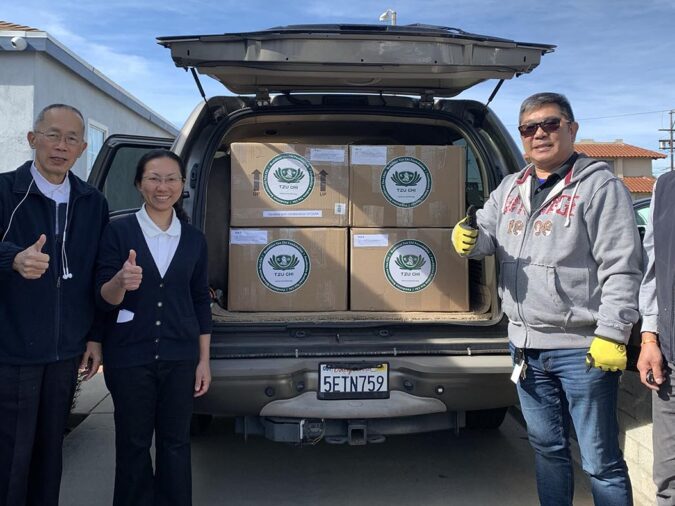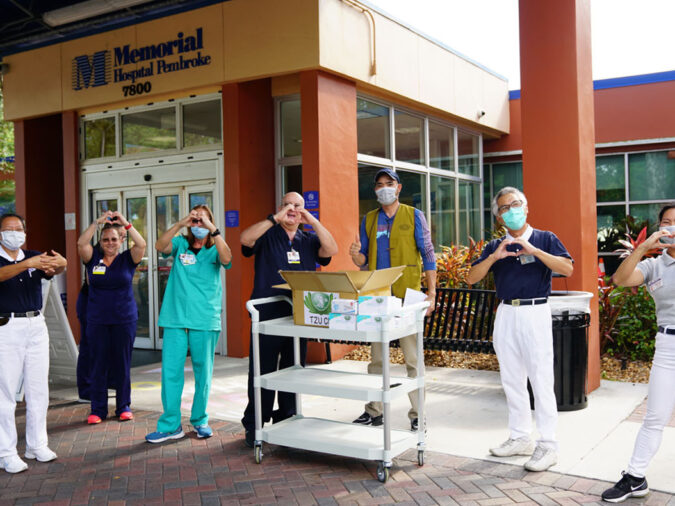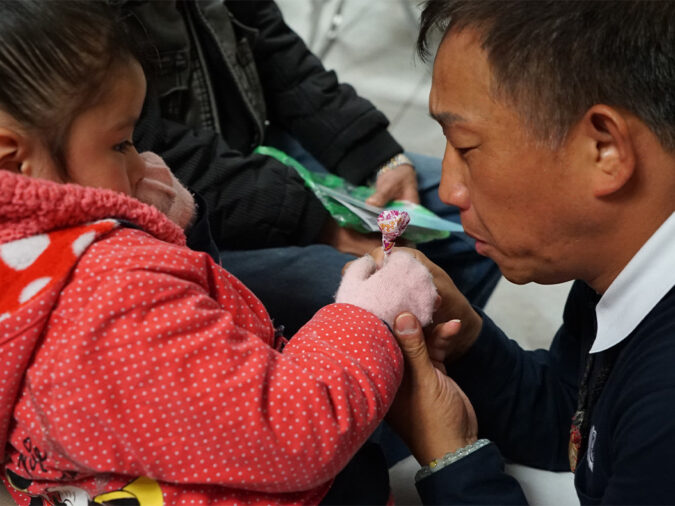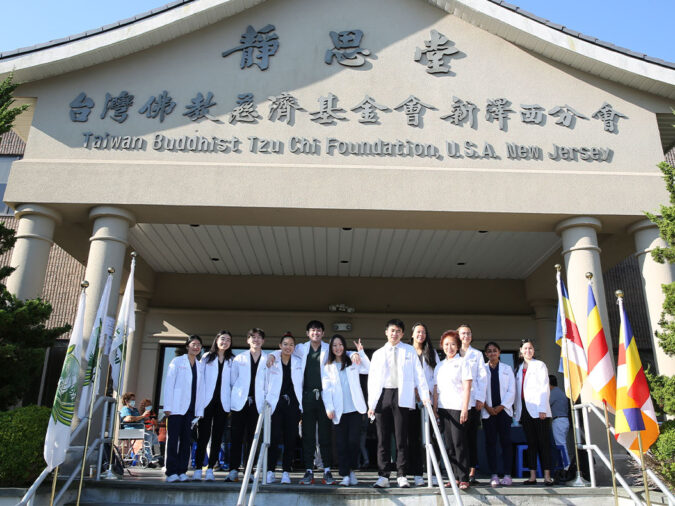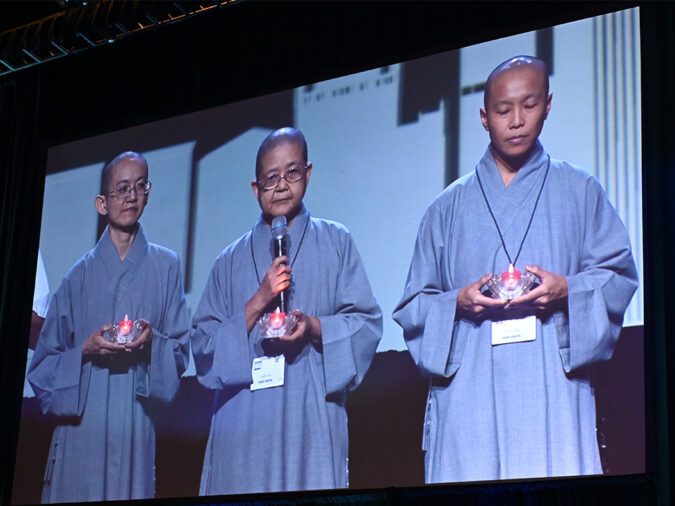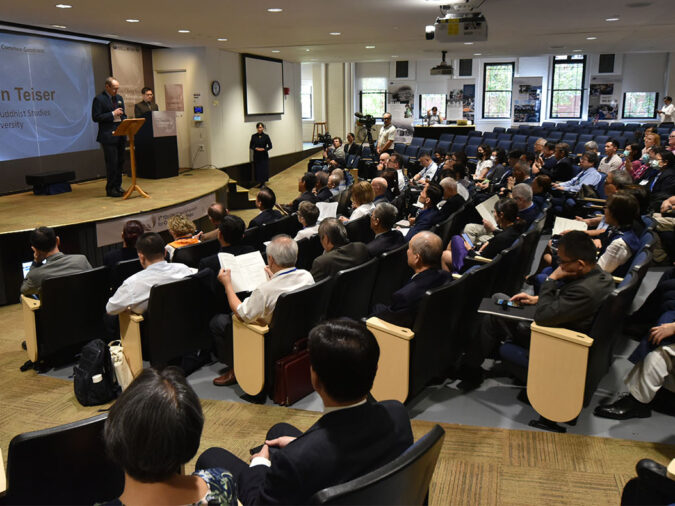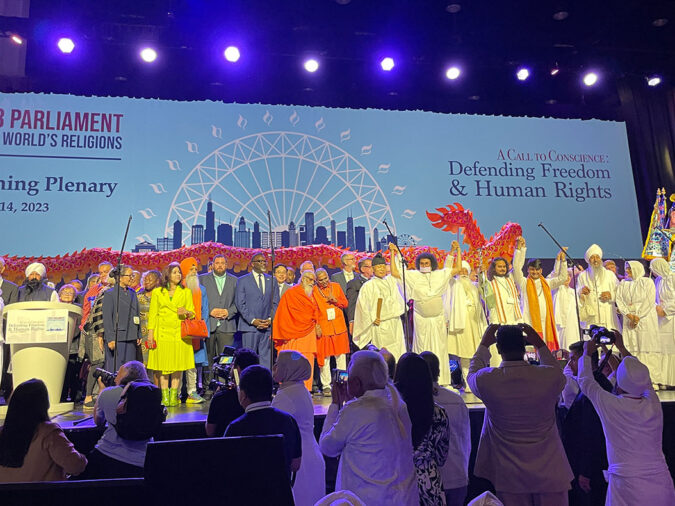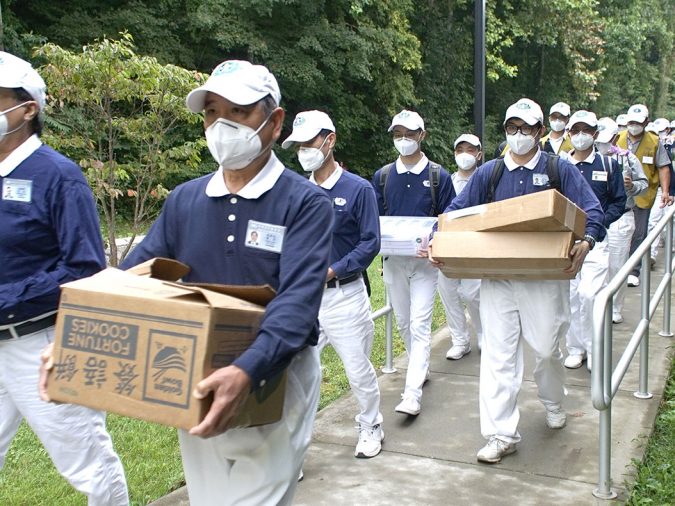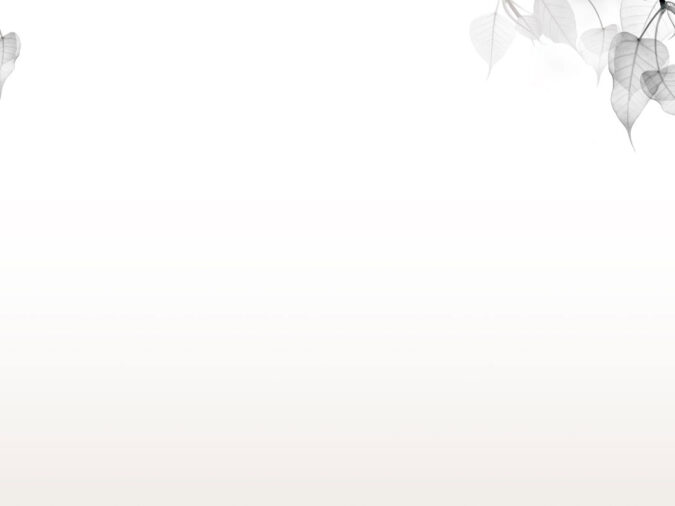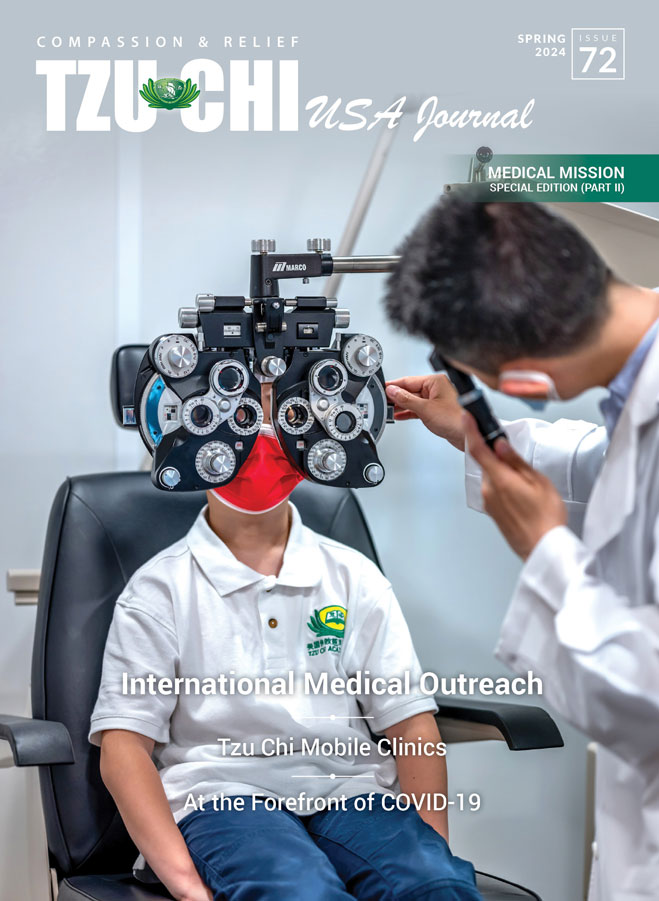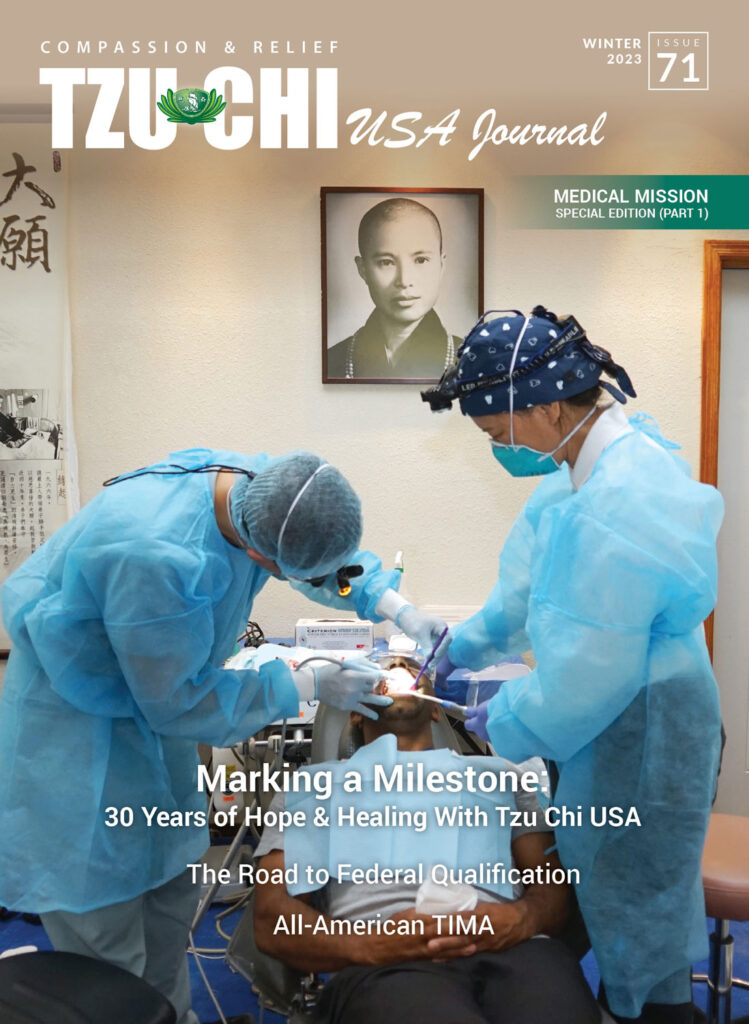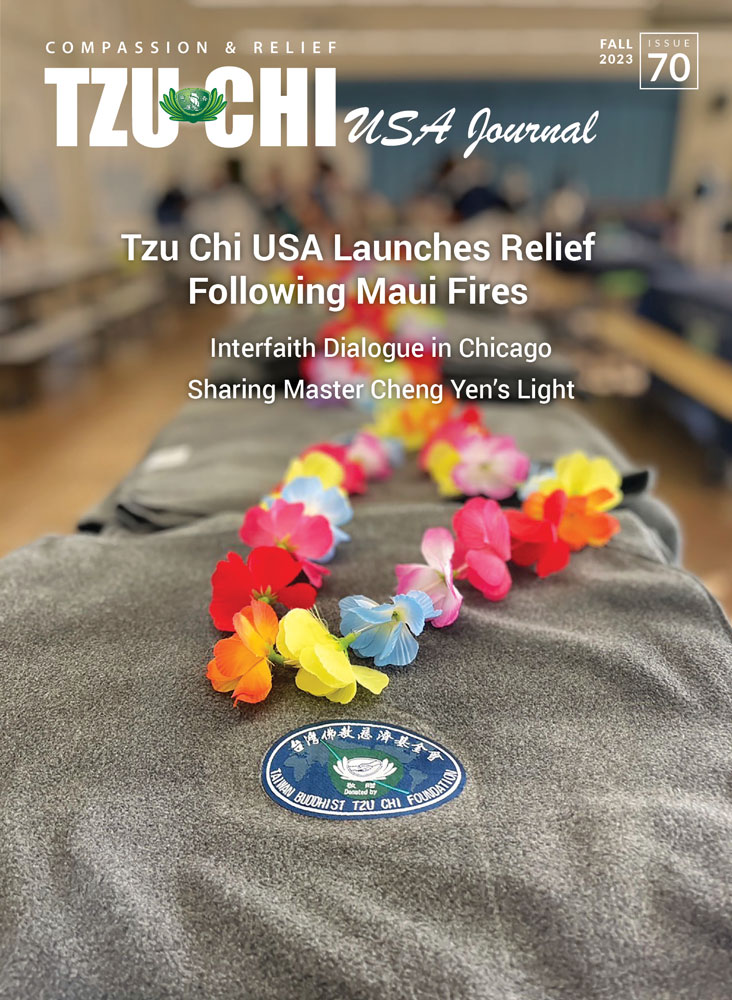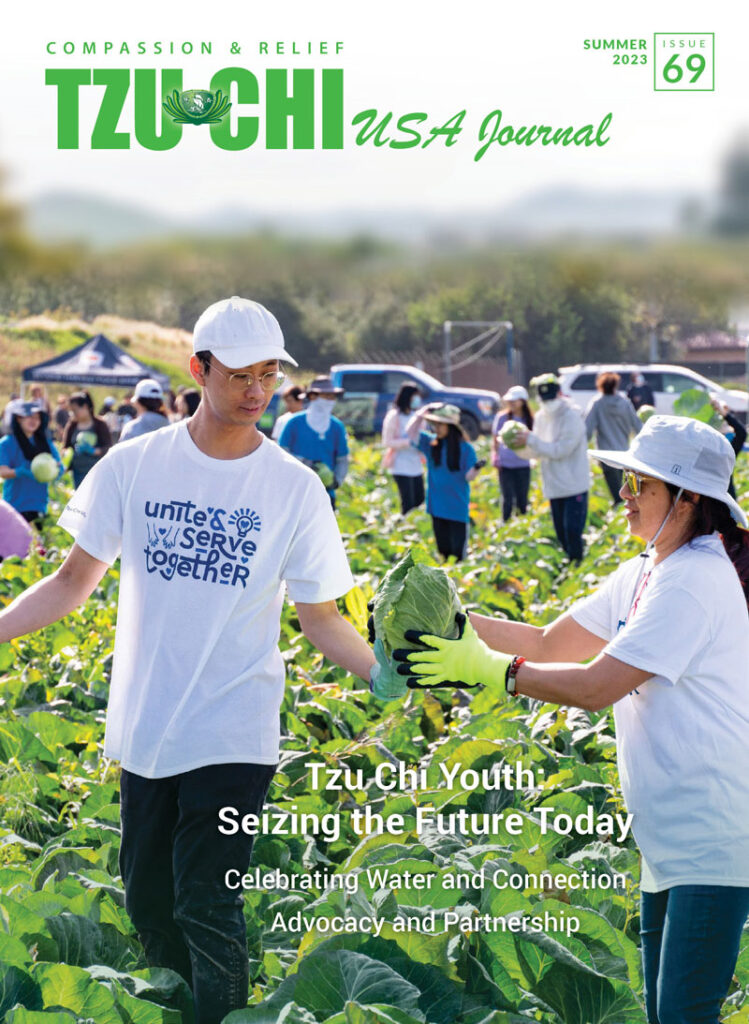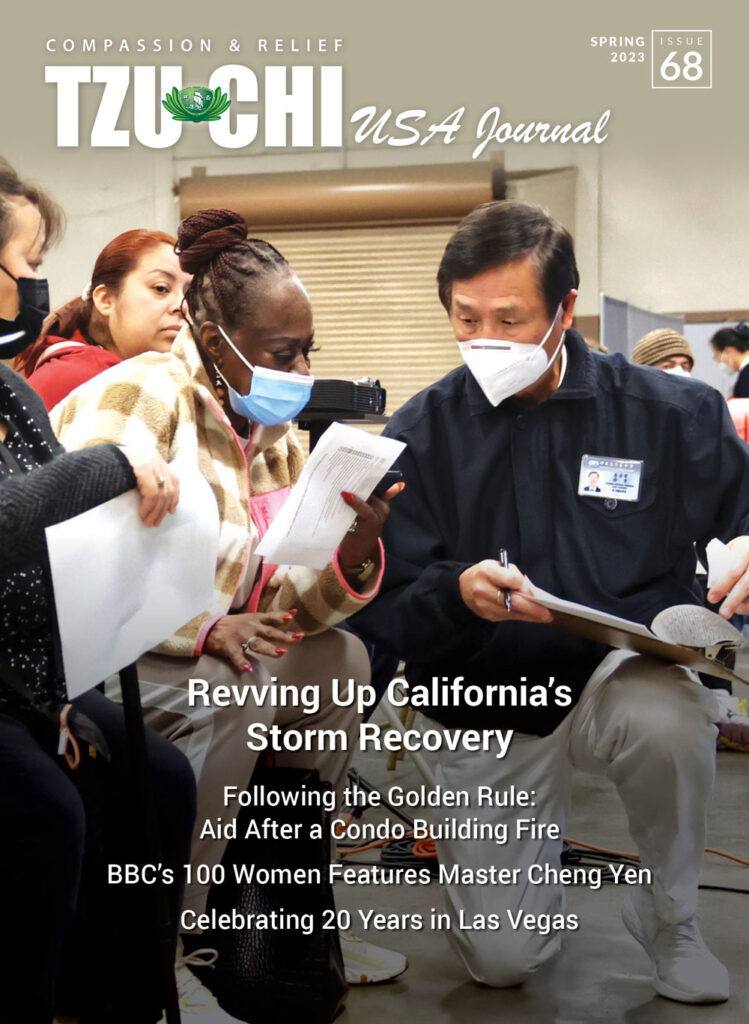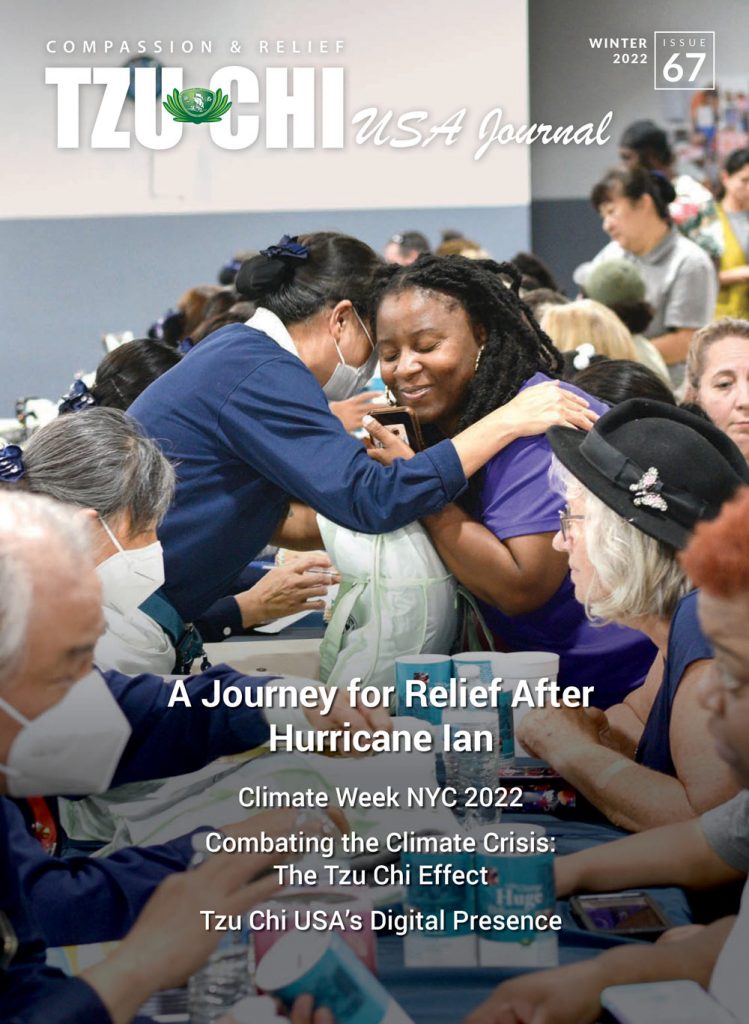SHARE
As the COVID-19 descended upon our lives, transforming routines and habits for months on end, snatching away what we may have taken for granted, it also led us to question. What did we miss the most, and why? Did what most defined our lives, which may have been interrupted, actually bring the most meaning to our existence? What did we discover about the sources of our happiness and satisfaction?
Our editorial team at the Tzu Chi USA Journal decided to subsume this thread of questioning to ask: “What does a meaningful life consist of, finally? And does this view evolve as we gain more perspective and life experience over time?” A few of our colleagues at Tzu Chi USA kindly answered, so we’re sharing their thoughts with you.
Understanding the meaning and purpose of one’s life as it fits into a larger context.
Natasha (pseudonym)
A meaningful life consists of the aim of doing good deeds in all decisions I make. After gaining more experiences, I found that it is very hard sometimes as reality might not grant you the opportunity but by changing the angle of view, we are still able to uphold the principle.
Yee Siang Yong
Happiness and Harmony – achieved by helping others, trustworthy and sincere friendships. Yes, this becomes more clear over time.
Katie Chao
A meaningful life for me is defined by my love for Jesus Christ and the enduring promise of His word, along with the music in my heart, and the love I give and receive from others. This belief for me is evolving over time as I believe the only true measure of loving God is our obedience to Him. If we have heard the Word of God and not allowed it to transform our lives, we have not listened in the Biblical sense. My continued prayer is for God to help me to surrender to Him and His ways vs. trying to do it my way, and that is a daily journey for me.
Steven "Skip" Edwards Culton, Jr.
Being altruistic, and continuously self-improving, helps me live a meaningful life. It is an evolving view.
Huan Xun Chan
‘Human life has no meaning, no reason, and no choice,’ says my teacher [Korean Zen Buddhist Master] Seung Sahn. But I have brought my mindfulness practice when serving others. No meaning, no reason, and no choice have changed into Great Love, Great Compassion, and Great Vow and Bodhisattva Way, respectively [principles upheld by the Tzu Chi Buddhist lineage].
Abhishek Dalal
LOVE
Baba Kauna Mujamal
We then asked our seven respondents how they discovered the Buddhist Tzu Chi Foundation and if being involved in its work added meaning to their life. What did they discover that may have been absent before? And was their involvement changing them somehow?
Abhishek Dalal also got involved through Tzu Chi USA’s clinics and medical outreach, serving as a community volunteer. “I participate in the clinic team by filling in wherever I’m needed,” he explains, adding that he finds the experience rewarding and meaningful in a variety of ways:
I am continually fulfilled by the words of gratitude and hopefulness that I hear from patients at Tzu Chi Mobile Clinic. Serving with this organization has been an invaluable experience. Not only do I participate in the empowerment and healing of patients’ lives, but I have found a renewed sense of purpose in my life of ‘Tzu Chi’ or ‘compassionate relief.’ As an aspiring physician, I hope to channel my experiences to build meaningful connections with patients and better engage them in their healthcare.
Abhishek Dalal
Community Volunteer
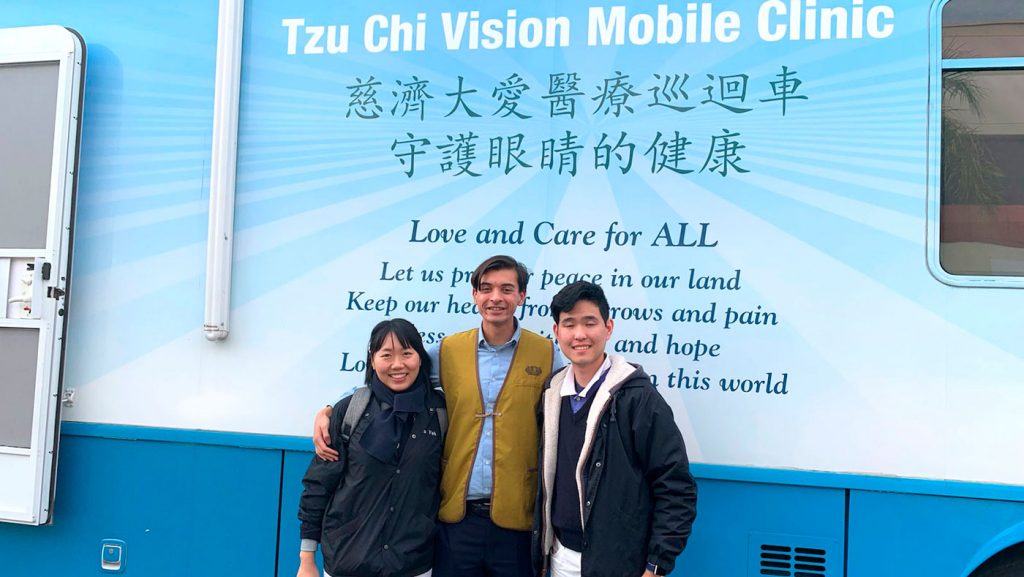
Abhishek also shared that “I feel rewarded when I cross language and cultural barriers with patients,” and his fluency in Spanish helps in this regard. Once, a Hispanic patient confided that his glaucoma remained undiagnosed and untreated for years until one of Tzu Chi’s free clinics addressed his vision concerns: “This is one of many invaluable encounters that solidified my commitment to Tzu Chi. I am delighted to have had the privilege to bond with patients and empower them.”
For Abhishek, such experiences “illuminate how I want to live my life with purpose.” While volunteering, he says he’s developing “an understanding of the relationship between myself and my circumstances.” This evolving “interpersonal intelligence” helps him continually develop empathy, enabling him to put himself in other’s shoes, acknowledge any distress, and find the right words or actions to put them at ease, “transforming the challenging encounter into an empowering experience.”

Natasha, a medical volunteer, began by participating in Tzu Chi USA’s free clinics: “I noted the remarkably efficient way in which the volunteers ran them and the sense of genuine caring underlying their actions. Also, I was naturally drawn to humanitarian work as a medical professional and appreciate the Buddhist foundations of Tzu Chi.”
And now, having discovered the world of volunteering, which she says she has found she can do “while also meeting amazing people,” Natasha finds meaning in this path of service, appreciative of how “this organization does work that makes a positive impact in lives.”
Tzu Chi brings about a positive impact in a world that is (seemingly) quite destructive and negative. I learnt from Tzu Chi, especially to be more compassionate in my actions, small and big.
Natasha (pseudonym)
Tzu Chi USA Medical Volunteer

Yee Siang Yong, staff on the Tzu Chi United Nations Task Force Team and undergoing volunteer training with Tzu Chi New York, got involved from a young age. “I was a Tzu Shao [Tzu Chi Youth Association Member] before and went to Tzu Chi University [in Taiwan]. I committed to getting involved because Tzu Chi provides me a sense of belonging and acts as a platform for me to find like-minded people, particularly those who want to do something good for the world.”
Yee says she discovered “the idea of compassion and empathy,” and credits Tzu Chi for helping “to strengthen my commitment in doing good deeds.”
Before that, I might only know how to sympathize, but after joining Tzu Chi, I learned that empathy is more important and helpful to others. This is important to ensure the good deeds we want to do are delivered correctly and fulfilling. It has shaped me into a better person in terms of my personal behavior and lifestyle. I will think twice or more before having an emotional change like anger, as a Jing Si Aphorism [pith teaching of Master Cheng Yen] will come up in my mind and calm me down. The teachings in Tzu Chi have helped me to go through hardships that initially I would want to give up, but I have learned the way to overcome and face it with courage. I have also become a soft-spoken person.
Yee Siang Yong, Tzu Chi United Nations Task Force Team Staff
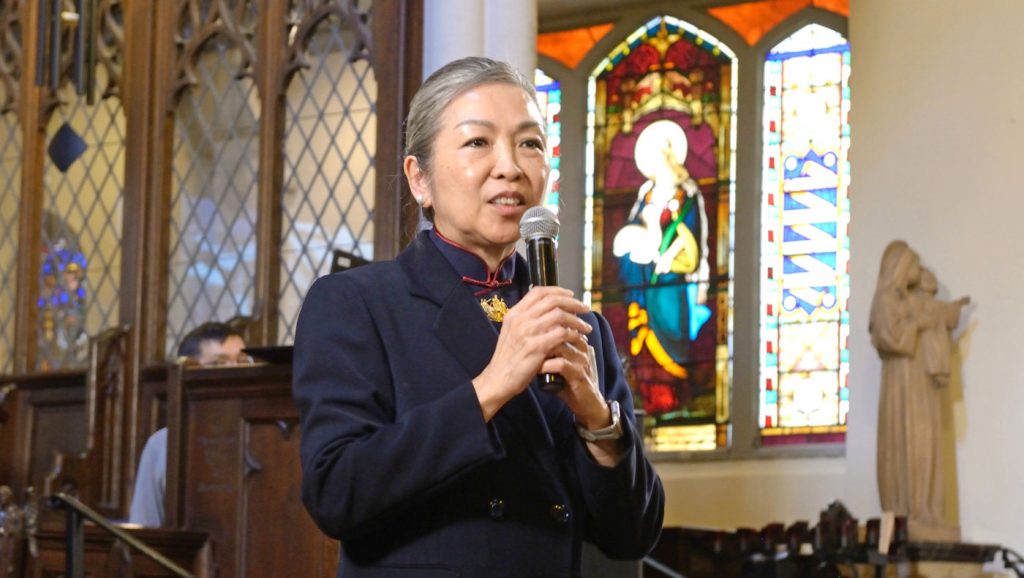
For Katie Chao, a certified Tzu Chi volunteer responsible for operations at the Tzu Chi Center for Compassionate Relief in Manhattan, New York, her involvement began after a co-worker introduced the organization. Katie shared that within a relatively short period, she “learned that the happiness reaped from helping others is immensely satisfying, and it also taught me the true meaning of life.”
These realizations are now gradually reinforced over time, and being part of the world of Tzu Chi adds meaning through “understanding the essence of Buddhism and Dharma. Every encounter is a learning process for me/us to achieve as a better, happier, more peaceful individual.”
As for what she discovered and how it’s changing her, Katie shared: “Having more self-confidence and deep belief that doing good deeds will result in positive retribution. It deepened my belief that if you have no ill intentions, just do it even if others might not agree with you.”
I believe in ‘Practice what you preach.’ Dharma Master Cheng Yen reminds us to ‘speak good words and do good deeds,’ and to ‘practice’ being (1) content; (2) understanding [of] others; (3) tolerant; finally (4) grateful. By practicing these four behaviors daily, I will be blessed and at peace with myself.
Katie Chao
Tzu Chi Center for Compassionate Relief Director
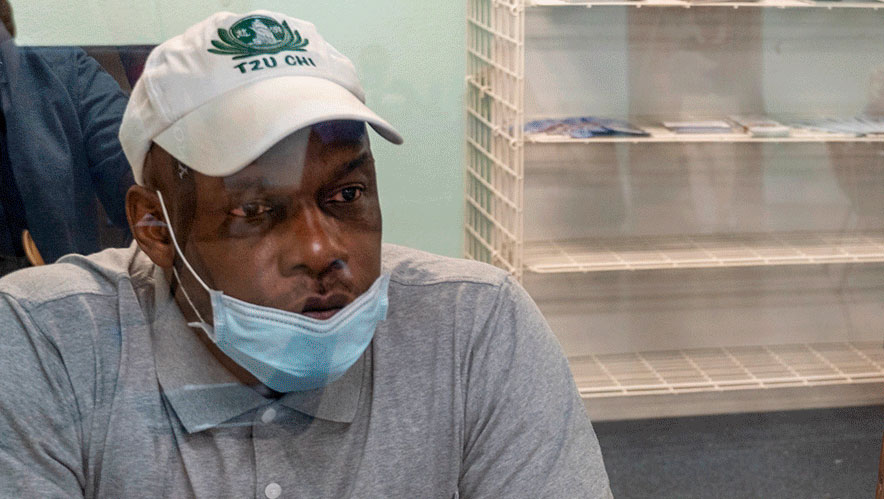
Baba Kauna Mujamal, a disaster case manager at the Tzu Chi Chico Recovery Center, got involved at the invitation of a friend, basically, “To help those less fortunate.” And now he finds meaning “through gratitude and appreciation” while being in service to those in need.
Baba says what he discovered through Tzu Chi, which was absent from his life before, is “the awareness of Master Cheng Yen.” As for the work changing him, he shared:
I felt a deeper reflection of myself, however, being in service in other ways. It helped deepen what I already knew and have. It continues to encourage me to go and do the work I was sent here to do, that is to use my gifts and talents to help make a change in the world.
Baba Kauna Mujamal
Tzu Chi Chico Recovery Center Disaster Case Manager
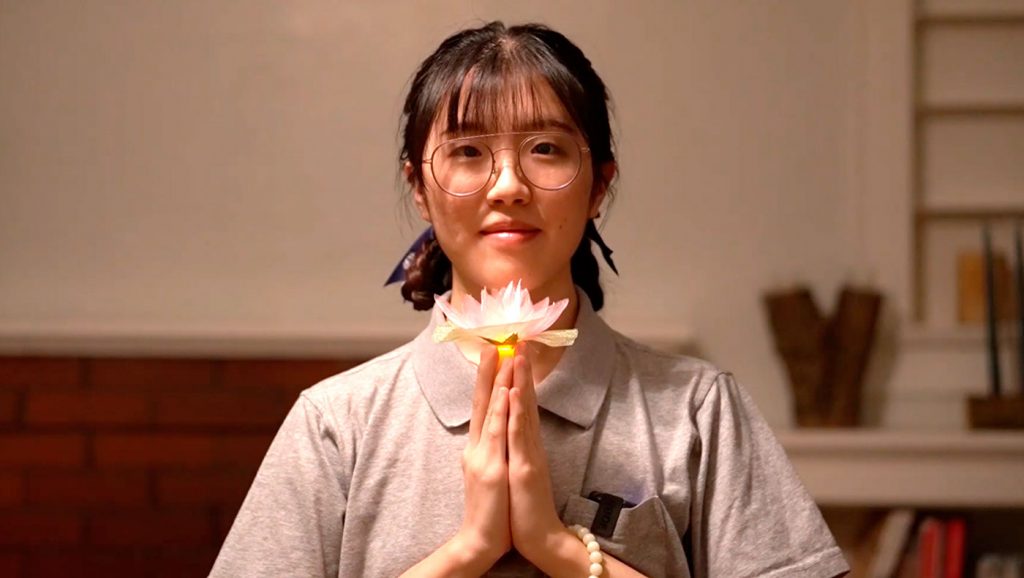
Huan Xun Chan, a media specialist at the Tzu Chi Chico Recovery Center, got involved through family: “I joined Tzu Chi in my middle school years when my mom joined it. It is a gradual process of involvement that I understand why I should continue doing this. Learning Buddhism from the teaching of Master Cheng Yen and practicing it through Tzu Chi involvement have added meaning to my life.” For Huan, this is now a lifelong path:
The Buddhist teachings I learned in Tzu Chi have set my life path. I think they will continue to change me the longer I am involved as I will experience more and understand more of Buddhism.
Huan Xun Chan
Media Specialist
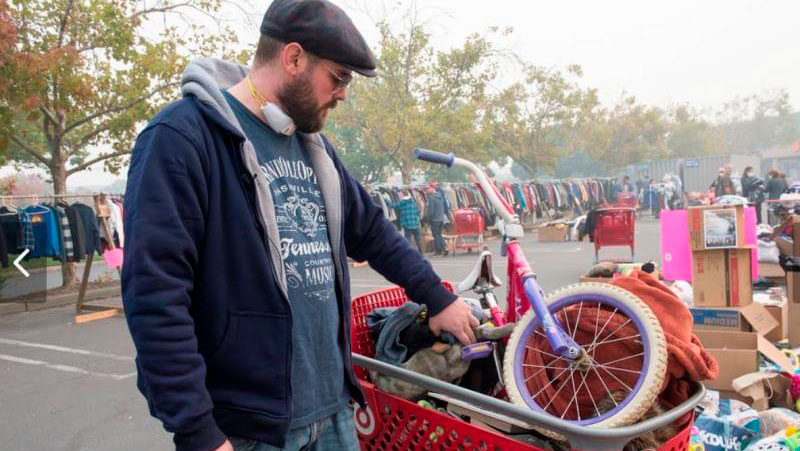
Tzu Chi Chico Recovery Center Disaster Case Manager
As for Steven “Skip” Edwards Culton, Jr., a disaster case manager at the Tzu Chi Chico Recovery Center, he’s thrilled to share that “Tzu Chi found ME!” Skip, a musician and single father whose home in Paradise burned during the 2018 Camp Fire, received emergency disaster aid from Tzu Chi USA.
Soon after, “Another Prayer in Paradise,” a song Skip wrote about the aftermath of the wildfire, went viral on social media, and Tzu Chi reached out. “We agreed to collaborate on the formal music video, with the shared goal of helping to create additional awareness and support for Camp Fire Survivors.” One thing led to another, and Tzu Chi ultimately offered him a job.
And now, Skip says he’s not only gaining spiritual and professional experience but also developing “more compassion, more patience, and more understanding that incredible things can be accomplished in non-traditional ways.”
Tzu Chi has given me the opportunity to share God’s unconditional love with the world, [and] it has allowed me to expand my spiritual horizon through Buddhist principles. Having come from the corporate world, I have found the opportunity to do truly meaningful work that genuinely changes lives and genuinely HELPS those in need. This work is important to me because it not only helps me heal, but it gives me a chance to help others in ways that will endure for the rest of their lives. For all these reasons, I view this as the most important work I’ve ever done.
Steven “Skip” Edwards Culton, Jr.
Tzu Chi Chico Recovery Center Disaster Case Manager
We now urge you to ask yourself as well, what constitutes a meaningful life for you? Because in the end, as Master Cheng Yen repeatedly affirms in her teachings, our time in this world is fleeting.
Human life passes in a breath. Our lives are measured in seconds, not in years. By realizing this, we can better appreciate our lives.
Jing Si Aphorism by Dharma Master Cheng Yen
Thus, why not devote the precious and limited time span of our lives to what matters the most, and do so mindfully each and every day?
Since we live in the world only for a few decades, the most important thing is our daily behavior. The success of our lives is the accumulation of all our daily actions. Our behavior each day determines whether our lives end up being meaningful or meaningless.
Jing Si Aphorism by Dharma Master Cheng Yen

